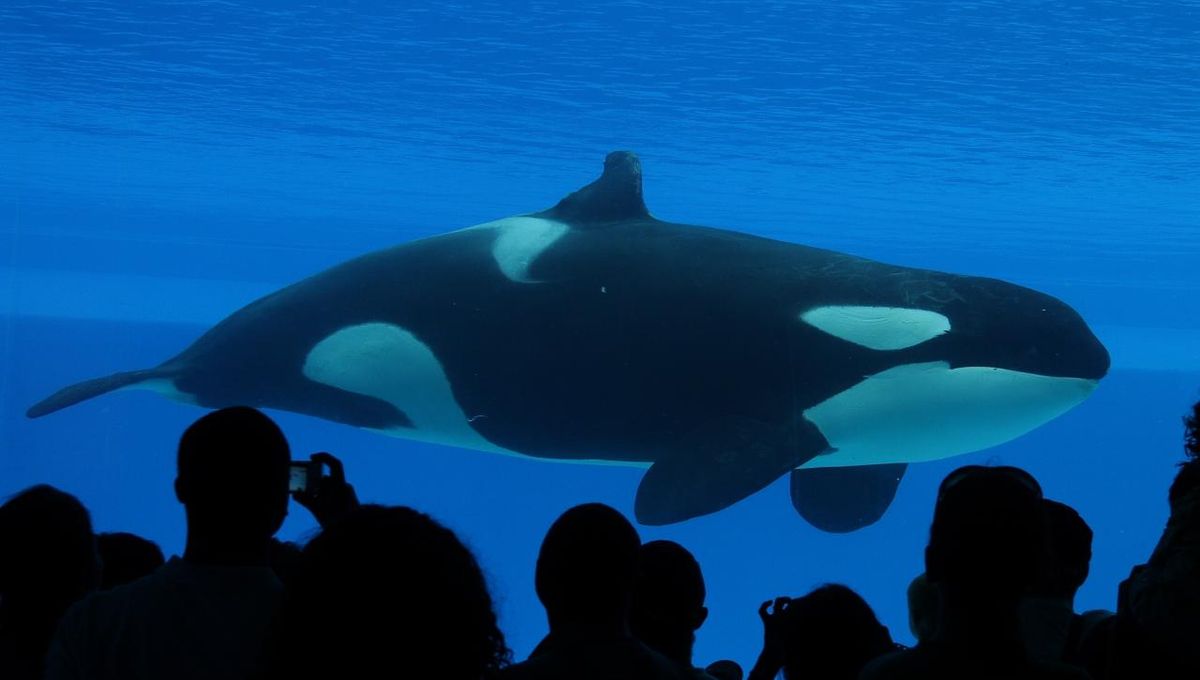
Kiska the orca, the last of her species to be held in captivity in Canada, has died at the approximate age of 47. For the last four decades, Kiska had been living at Ontario theme park Marineland, after having been captured in Icelandic waters back in 1979.
She was famously captured alongside another orca, Keiko, who also lived at Marineland for a few years and is best known for portraying the title character in the 1993 movie Free Willy. Keiko passed away almost 20 years ago.
The practice of keeping orcas in captivity has attracted a huge amount of controversy, which arguably reached its apotheosis with the 2013 release of the documentary Blackfish, focusing on the fate of Tilikum. Tilikum had been one of several orcas kept at SeaWorld Orlando, having been sold to the park in 1991, around eight years after his original capture. In part thanks to the controversy generated by the documentary, SeaWorld later phased out their live orca shows.
In Canada, a law was passed in 2019 making it an offense to hold or breed whales, dolphins, and porpoises in captivity. However, there was an exemption for marine mammals already being held in captivity, as was the case for Kiska.
According to Reuters, a local authority spokesperson confirmed that a necropsy had been performed on Kiska’s body but made no comment about the specific cause of death, although animal rights group the Whale Sanctuary Project reported that Kiska died of a bacterial infection. It has been reported previously that captive orcas are at risk of death from opportunistic infections.
The Whale Sanctuary Project previously dubbed Kiska “the loneliest whale in the world”. Her life was marred by tragedy: during her time at Marineland, she gave birth to five calves, all of whom died at a young age. Since 2011, she had been without a tank-mate at all, a fact that was thrown into stark relief only this year when drone footage of her swimming alone was released.
Orcas are known to be extremely social animals, and animal rights activists had been calling for years for Kiska and other captive whales to be released into a suitable retirement facility, to allow them to live more freely.
Other cases, such as that of Tokitae, an elderly whale who until recently performed in shows at the Miami Seaquarium, have shed light on the complexities of returning displaced marine mammals to their native waters. Fears of the spread of diseases into wild populations, and the potential stress of being placed into a new environment, must be balanced against the ethical and moral considerations.
For Kiska, no agreement about her potential retirement to a sanctuary was ever reached, a fact that is lamented by animal rights campaigners. As Camille Labchuck, executive director of Animal Justice, told CBC, “it is heartbreaking to know that Kiska will never have the chance to be relocated to a whale sanctuary, and experience the freedom that she so deeply deserved.”
Source Link: Kiska, The “Loneliest Whale In The World”, Has Died